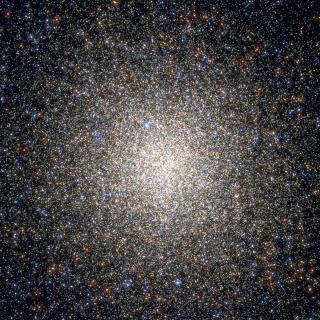Bibcode
Marino, A. F.; Milone, A. P.; Lind, K.
Referencia bibliográfica
The Astrophysical Journal, Volume 768, Issue 1, article id. 27, 8 pp. (2013).
Fecha de publicación:
5
2013
Revista
Número de citas
30
Número de citas referidas
29
Descripción
M 22 is an anomalous globular cluster that hosts two groups of stars
with different metallicity and s-element abundance. The star-to-star
light-element variations in both groups, with the presence of individual
Na-O and C-N anticorrelations, demonstrates that this Milky Way
satellite has experienced a complex star formation history. We have
analyzed FLAMES/UVES spectra for seven stars covering a small color
interval on the reddest horizontal branch (HB) portion of this cluster
and investigated possible relations between the chemical composition of
a star and its location along the HB. Our chemical abundance analysis
takes into account effects introduced by deviations from the local
thermodynamic equilibrium (NLTE effects), which are significant for the
measured spectral lines in the atmospheric parameters range spanned by
our stars. We find that all the analyzed stars are barium-poor and
sodium-poor, thus supporting the idea that the position of a star along
the HB is strictly related to the chemical composition, and that the HB
morphology is influenced by the presence of different stellar
populations.
Based on data collected at the European Southern Observatory with the
FLAMES/UVES spectrograph under the program 085.D-0698A.
Proyectos relacionados

Vía Láctea y galaxias cercanas
El objetivo general del Proyecto es el estudio de la estructura, historia evolutiva y proceso de formación de galaxias a través de sus poblaciones estelares resueltas, tanto a partir de fotometría como espectroscopia. El proyecto puede dividirse en cuatro líneas principales: I. Historia de formación estelar en el Grupo Local. El objetivo de esta
Martín
López Corredoira